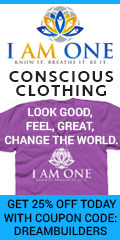7 Ways to Trust yourself More
 Sunday, April 14, 2024 at 2:20PM
Sunday, April 14, 2024 at 2:20PM Many people agree that building trust in themselves can have many benefits in different life areas. Consider 7 ways to trust yourself more:
1. Deepen connection with yourself
Trusting our own intuition may not seem easy if adversity or traume have taught us to distrust. These experiences are like energetic blockages to self-trust. So, if feeling indecisive, consider asking or journalling, “is this what I really want?” When we repeat this, true feelings get louder. We only hear when ready to truly listen. As we reconnect with inner voice, creating boundaries happens naturally and help us distance from harmful actions or relationships.
2. Practice Self-Compassion
Sometimes, a mistrust of self can come from a lack of self-compassion. Sometimes we forget every human is imperfect. Come what may, life choices do not define us. Being kind to ourselves makes us less judgemental. Shifting into self love and acceptance is the road to building the foundation of self-trust.
3. Revisit the power of intention
Although it’s wonderful to have lofty goals in the long term, it can help to set some reasonable goals that are achieveable in a shorter term. If we only aim high, we may get frustrated or discouraged. This could impact self-trust and affect overall energy level and motivation. Setting clear intentions are ery important also.
4. Value Solitude
Many people are afraid to be alone. It can bring up feelings of discomfort or loneliness. While loneliness may harm your mental health, there are benefits to spending some quality time in solitude. Alone time can help you work out your own needs and preferences. It gives you time to make decisions that feel right to you without being influenced by the external.
5. Master a New Skill
When you lose trust in yourself, you also lose confidence that you can cope or care for yourself. Building mastery over a specific skill can help you regain your self-esteem and trust in your ability to cope with life’s challenges. To get started, choose a skill that evokes enthusiasm. Commit to learning and practicing this skill until you feel confident in your ability to perform it.
6. Consult a Mentor
While on the journey to learning something new or shifting habits and life focus, it can be helpful to work with a mentor or coach to keep you on track. It is valuable to be exposed to different perspectives that you may not have considered. Interacting with someone having deep insight or simialr life experience has unexpected benefits.
7. Commit to Dreamwork
What we dream during the night can be very educational. Yet, many people do not recall details regularly or see value in closer reflection. Dreams can reveal how we are feeling and coping with life or obstacles we are facing. It can offer insight about level of consciousness and other gems. Consider taking exploring self-view from different vantage points during day and nightime hours.










